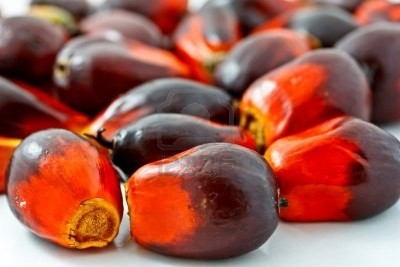General Mills ramps up palm oil pledge to consider deforestation

The cereal and snack titan said that while it was a, “relatively minor user of palm oil”, it remained committed to sourcing 100% of its palm oil responsibly and sustainably by 2015 - a pledge it first made in 2010.
General Mills said it would continue to source certified palm oil from members of the Roundtable on Sustainable Palm Oil (RSPO) – an organization it was also a member of – but added it would go beyond RSPO sourcing criteria to ensure all supply was not associated with deforestation or developed on peat lands and with full traceability to the extraction mill and validation of fresh fruit bunches.
It said the company was concerned about the role palm oil expansion played in threatening the world’s rainforests and the impact this had on biodiversity, endangered species, and the broader environment such as climate change and global greenhouse gas emissions.
Kellogg moved on its palm oil policy last month, bringing deforestation-free oil to the agenda too.
Transparency at supplier level
“As part of our commitment, General Mills has integrated responsible palm oil procurement guidelines into our sourcing strategies. As a principled purchaser, General Mills engages its suppliers in direct review of their palm oil production and sourcing practices – and will continue to do so.”
It said that should an audit or other credible source reveal or confirm a supplier was violating these principles, and the supplier did not change its practices, it would suspend or eliminate palm oil purchases from that supplier.
“We support transparency relative to palm oil production and expansion, and will regularly update our progress. We will encourage our suppliers to do the same.”
However, General Mills said that the future of palm oil sourcing was not without its challenges.
“Hurdles remain in the palm industry. Use of certified sustainable trade mechanisms, such as GreenPalm certificates, may be necessary in smaller operations.”
GreenPalm certification guaranteed that a tonnage of oil equivalent to the tonnage used has been produced from RSPO-certified plantations.
NGOs welcome move but call on rapid action
The Rainforest Action Network (RAN) welcomed General Mills’ move to strengthen its commitment and said it was a step in the right direction.
“For communities and orangutans in Indonesia, what matters now is that General Mills puts this commitment into action with thorough and rapid implementation,” said Gemma Tillack, senior forest campaigner at RAN.
RAN has claimed the move from General Mills is a result of the organization’s efforts and campaigns against the food firm over the years.
Major brands need to 'turn the tide' on the palm oil industry, says Sharon Smith from Union of Concerned Scientists
The Union of Concerned Scientists (UCS) also welcomed the move, stating General Mills had turned a new leaf that would significantly decrease its contribution to climate change. In particular, the UCS said the pledge to avoid sourcing from suppliers who develop peat land was positive.
However, Sharon Smith, campaign manager of UCS’s Tropical Forest & Climate Initiative, said it was really up to major brands to, “turn the tide on the palm oil industry”, demanding palm oil that’s deforestation-free, peat land-free and exploitation-free.
Backlash against industry on palm oil sourcing
General Mills, among other big food firms, has come under fire for its palm oil sourcing program over the years. In 2010, campaigners from the Rainforest Action Network (RAN) protested outside General Mills’ headquarters because they claimed palm oil used by the firm was strongly linked to deforestation in Southeast Asia.
At the time, General Mills said RAN’s claims were unfounded and that it had a sustainable palm oil sourcing program and was a member of the RSPO.
Last year, the company came under fire again from RAN in a 40-page report published in September that took aim at General Mills and 19 other snack food firms including PepsiCo, Kellogg and ConAgra Foods for their palm oil sourcing policy. In the report, RAN said food giants supporting “weak” and “diluted” RSPO standards or buying GreenPalm certificates were kidding themselves if they thought it would save rainforests.
“Companies who want to purchase only responsible palm oil must adopt independent global palm oil procurement policies that go above and beyond the standards of the RSPO,” RAN argued.
It claimed that RSPO standards still permitted planting on peat lands and cleared ‘secondary’ forests – many of which contain as much carbon and wildlife as ‘primary’ forests.
RSPO under fire
The RSPO requirements have been questioned by some NGOs but supported by others like the World Wildlife Fund (WWF).
Although, WWF’s VP of agriculture Dave McLaughlin told our sister site FoodNavigator-USA that the WWF would like RSPO standards tightened to include GHG emission standards and zero planting on peat lands.
The RSPO remains the most widely supported standard for palm oil production. Certification criteria include protocols for waste management, reducing fertilizer and pesticide use, preserving high conservation value forest, abiding by local laws, respecting community rights, and ensuring minimum labor standards.




















